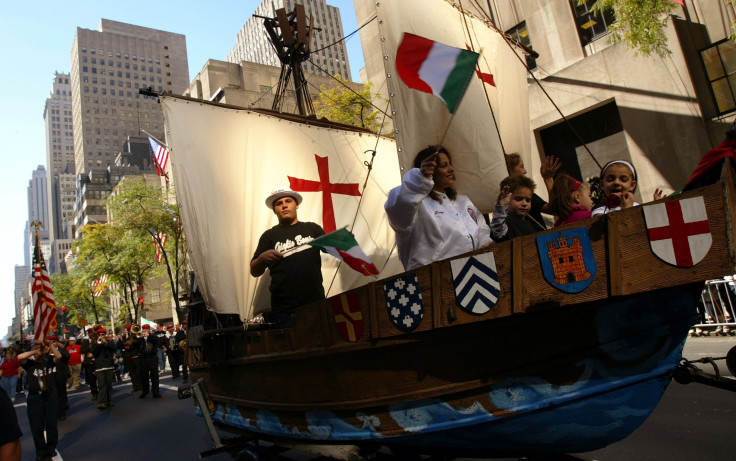Native Americans Today: Montana Heritage Day May Replace Columbus Day In Montana

If state lawmakers in Montana pass the House Bill 322, Oct. 9 will not be celebrated as Columbus Day. Instead, it would be renamed as Montana Heritage Day.
The proposal, pitched by Bridget Smith, a Democrat representing the Fort Peck Indian Reservation in eastern Montana, was reportedly not opposed when it was presented Wednesday. It will be voted on by the house committee in the coming days, according to NBC Montana. Notably, with seven seven American-Indian reservations, this segment reportedly constitutes the state’s largest non-white demographic.
“When children discover the truth they realize they are being manipulated and indoctrinated, although they may not know why. When Indian children discover the real history, the truth fosters resentment and they also know they are being portrayed as less than ... It is time we quit teaching lies and realign ourselves with all men are created equal,” Smith said, according to Bozeman Daily Chronicle. Smith also denounced the legacy of Italian explorer Christopher Columbus for the acts of genocide he perpetrated on the indigenous people he met.
If approved, Montana would join the long list of cities that have replaced Columbus Day with Indigenous Day celebrations, in an effort to make the holiday feel more inclusive. Although the Montana legislator also originally wanted to change the name of the holiday to Indigenous Day, it was ultimately suggested as Montana Heritage Day for more inclusiveness.
“Montana belongs to all of us. Montana Heritage Day can be a source of pride that unites us,” Smith said, according to Bozeman daily chronicle.
The controversy behind Columbus Day is not new and has been a perennial issue for American cities. Last year, eight new cities -- Albuquerque, New Mexico; Lawrence, Kansas; Portland, Oregon; St. Paul, Minnesota; Bexar County, Texas; Anadarko, Oklahoma; Olympia, Washington; and Alpena, Michigan – joined the likes of Seattle and Minneapolis to replace Columbus Day.
With the issue of migration being a central theme in the U.S. presidential elections last year, and now with President Donald Trump’s travel ban, it may be worth listening to the late Latin American historian Eduardo Galeano. In a discussion with Amy Goodman for "Democracy Now," Galeano discussed border restrictions in the 21st century and compared them with the legends of conquistadors.
"Christopher Columbus couldn't discover America, because he didn't have a visa or even a passport. Pedro Alvares Cabral couldn't get off the boat in Brazil, because he might have been carrying smallpox, measles, the flu or other foreign plagues. ... And the Mayflower pilgrims were sent back to sea from the coast of Massachusetts: the immigration quotas were full," he said, quoting an extract from his book.
© Copyright IBTimes 2025. All rights reserved.






















